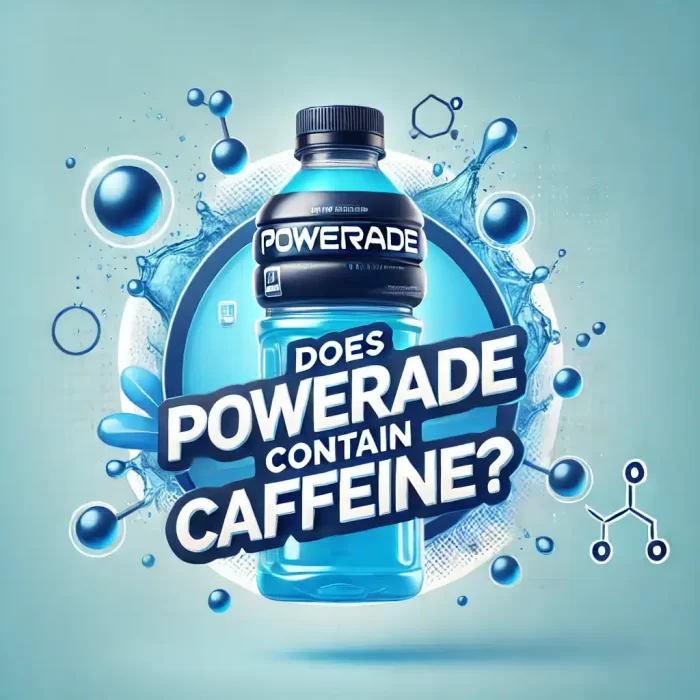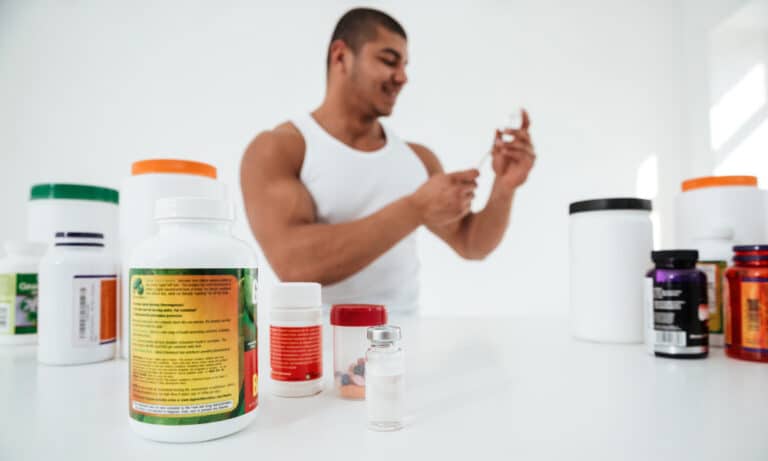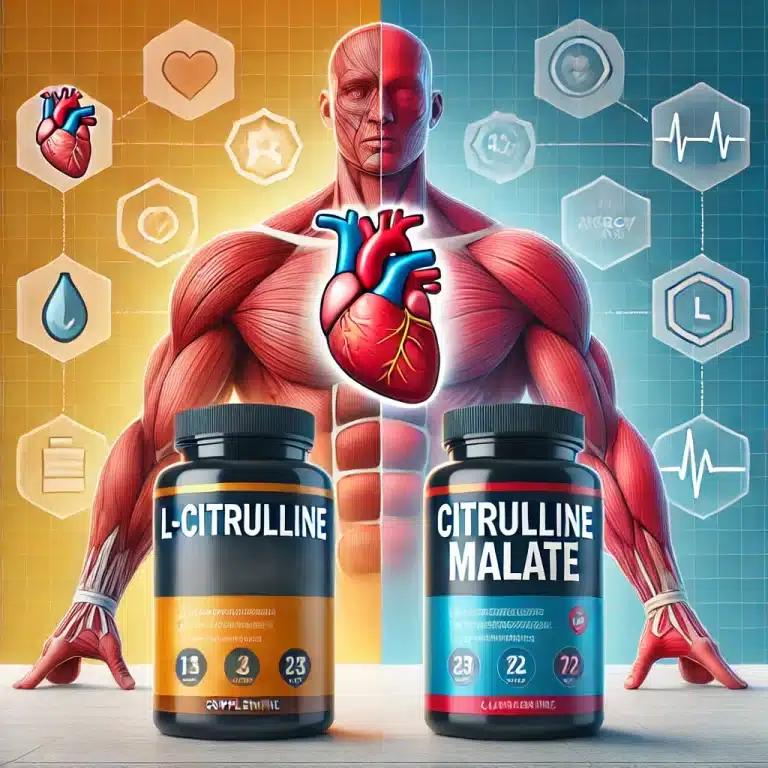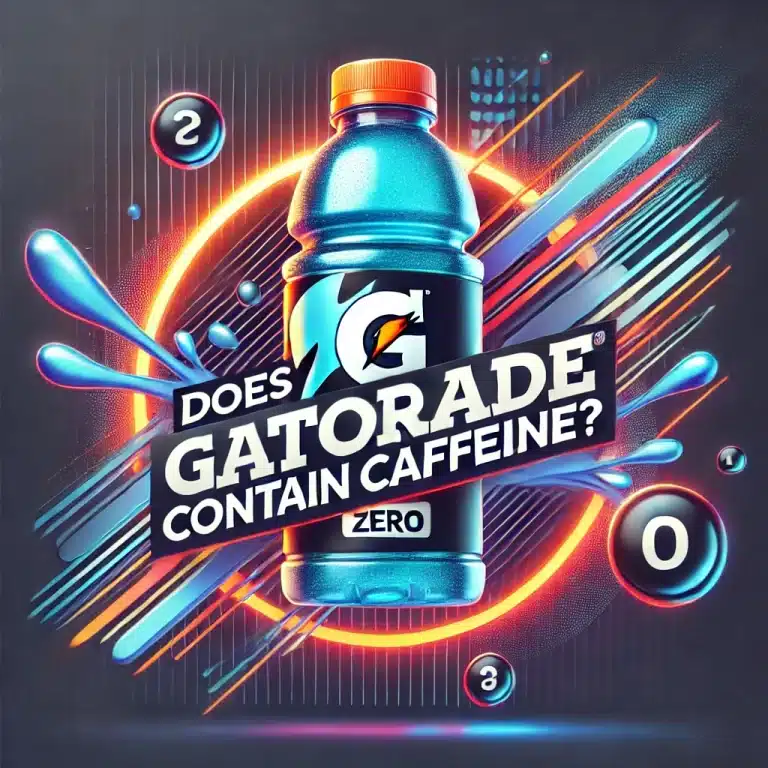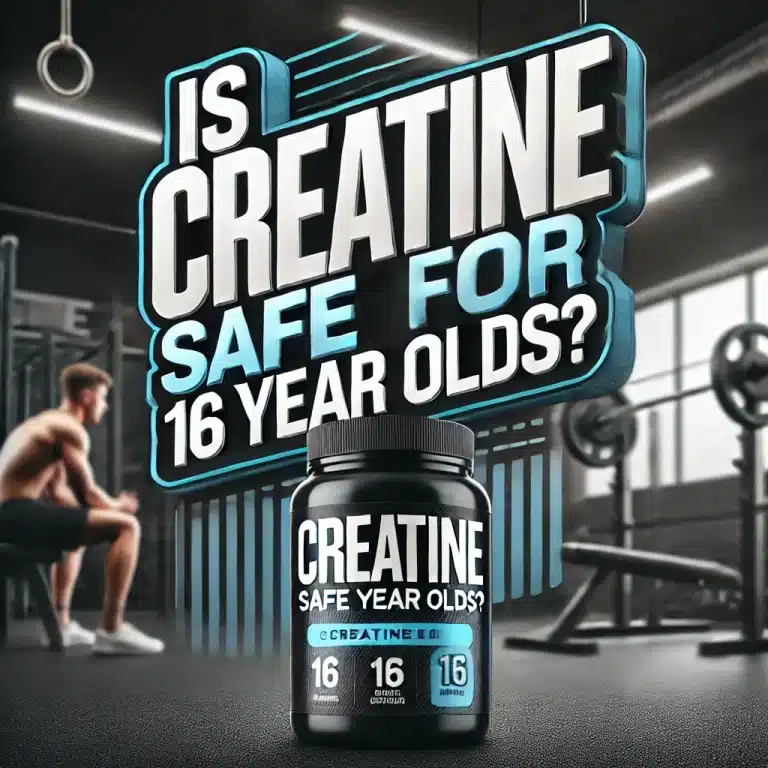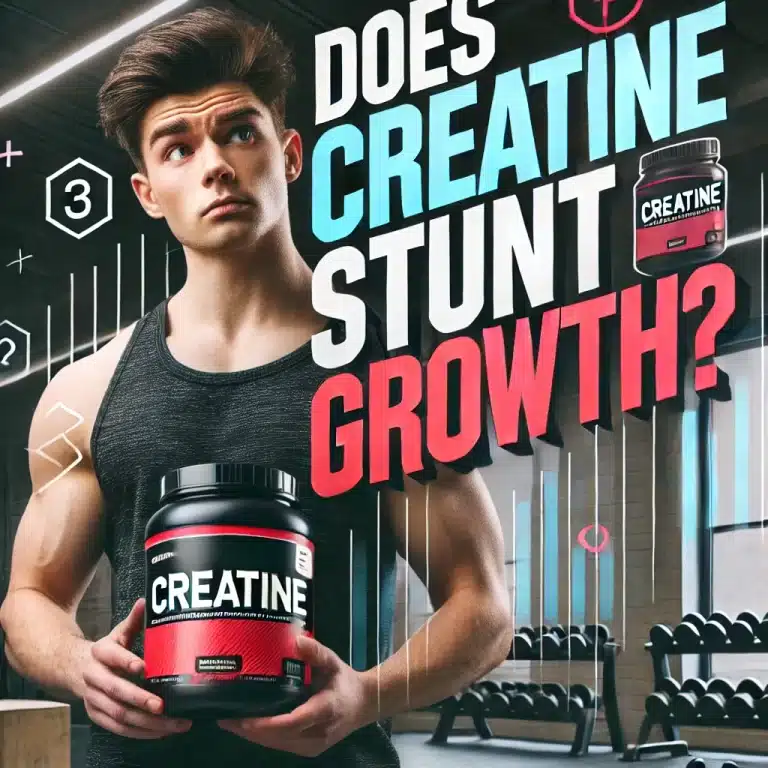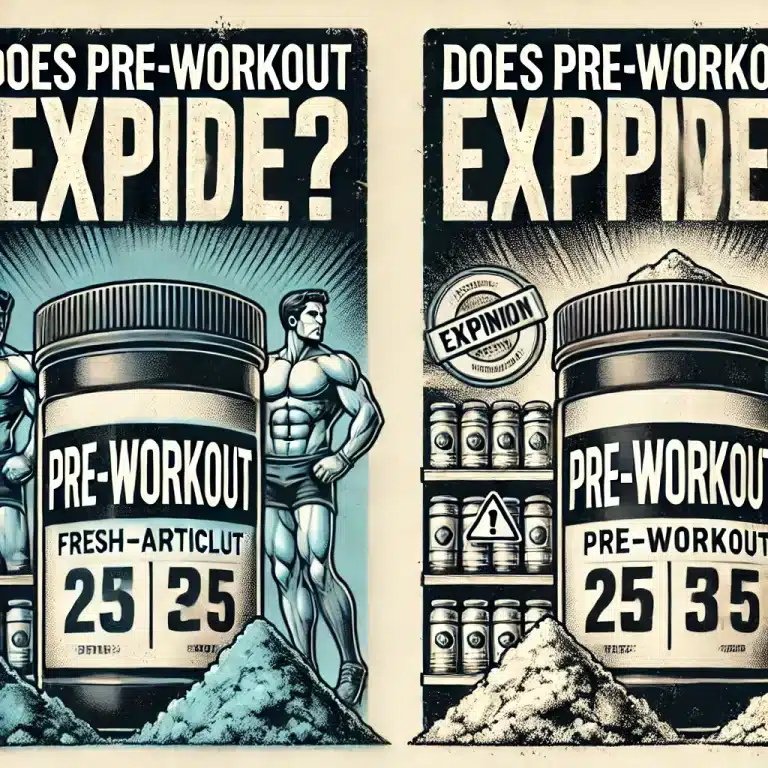Does Powerade Have Caffeine?
You fall in the mid-sweat, mid-day, mid-hangry range. Whether you just finished a demanding workout or have been racing about all day, you grab a bottle of Powerade—the brilliant blue one—because, to be honest, it tastes like success.
You swallow a few gulps and for a moment feel anything. A little more conscious. Slightly more alert.
It dawns on you then: “Wait… does Powerade have caffeine in it?”
In truth, it’s a reasonable question. Many of the drinks sold today as “sports” or “performance” beverages are laden with caffeine, stimulants, and all kinds of additives. To launch a rocket, you have energy beverages masquerading as sodas, pre-workouts, and hydration powders high in caffeine.
Powerade, being the audacious, electric-colored hydration hero, naturally feels like it might have a little kick.
Still, does it matter?
We are dissecting whether Powerade contains caffeine in this post, why there is so much uncertainty about it, and what you should know should you be grabbing it before or after a workout.
Let’s officially clear the label once and once only.
What Is Powerade?
The Coca-Cola Company created Powerade, a sports drink, specifically to help athletes and active individuals stay hydrated and replenish essential nutrients during physical exertion. Powerade provides electrolytes and carbohydrates that are necessary for maintaining performance during extended periods of exercise, in contrast to water, which only addresses hydration.
A Brief History of Powerade
Launched in 1988, Powerade—dominated by Gatorade—was Coca-Cola’s response to the rising market for sports beverages. Powerade Zero Sugar is one of the several flavors and choices Powerade has added to appeal to a larger audience with diverse dietary requirements over the years. Its formulation and branding center mostly on maximizing sports performance.
What Makes Powerade Unique?
Offering one drink combining hydration, energy, and nutrient replacement, Powerade distinguishes itself. This distinguishes it from others:
- The main electrolytes in Powerade are sodium and potassium. Particularly during extended activity, these minerals are essential for preserving fluid balance, neuron function, and muscular contraction.
- Powerade’s carbs are meant to give a quick energy boost, therefore enabling athletes to maintain endurance and recover faster.
- From Mountain Berry Blast to Fruit Punch, Powerade suits a spectrum of taste palettes, thereby making hydration fun.
- Select Powerade products are supplemented with B vitamins, which help to control energy metabolism and lower weariness.
Key Ingredients of Powerade:
Powerade contains the following primary ingredients:
- Water: The fundamental hydration component.
- Sodium and potassium help restore minerals lost by perspiration.
- Usually found as sugars, carbohydrates give fast energy.
- The taste and look of the drink are improved by flavors and colors.
- B Vitamins: A few Powerade variants incorporate B vitamins for the help of energy metabolism.
Who Is Powerade For?
Powerade is tailored for:
- Athletes: Powerade helps restore nutrients lost when sweating whether your activity is endurance, team sports, or marathon running.
- Active People: It gives gym-goers and fitness fanatics an advantage in keeping hydration and energy throughout exercises.
- Hot Weather Conditions: Powerade replaces the electrolytes lost by too much sweating during outdoor events held in high temperatures.
Although Powerade is good for some groups, it’s important to keep in mind that the sugar level could lead to unwarranted calorie consumption for those not very active.
Does Powerade Have Caffeine?
The quick response is: most Powerade variants do not have caffeine. Classed as a sports drink rather than an energy drink, Powerade is a It is more meant for hydration and electrolyte replacement than for giving a caffeine-based energy kick.
Powerade’s Purpose and Ingredients
Powerade emphasizes delivering electrolytes and carbohydrates, unlike energy drinks, which may include caffeine as a crucial component to increase alertness and performance. The objective is to help with physical performance and rehabilitation free from stimulant dependence. While carbs give rapid, useable energy throughout extended physical exercise, sodium, and potassium in Powerade help preserve fluid balance.
Powerade Zero Sugar
Another low-calorie substitute for the original formula, Powerade Zero Sugar, likewise lacks caffeine. Rather, it stresses hydration and electrolyte replacement free from additional carbohydrates. This makes it a great option for those looking for low-calorie hydration alternatives without forfeiting the advantages of electrolyte restoration.
Why People Think Powerade Might Contain Caffeine
Many times, the link between athletic performance and energy results in consumers assuming Powerade has caffeine. Many sports and energy beverages are promoted similarly, which begs questions regarding their intended uses. Although caffeine is a popular ingredient in energy drinks, Powerade is unique in its purpose and composition and emphasizes just hydration and recovery.
Exceptions to the Rule
Standard Powerade products are caffeine-free, but it’s always smart to closely examine labels. Companies occasionally release limited-edition or region-specific versions with perhaps extra substances like caffeine. These kinds of products are not very common as of yet, and most Powerade drinks have their caffeine-free label.
Why Doesn’t Powerade Include Caffeine?
The goal of Powerade is different from that of energy drinks, hence the decision to omit caffeine fits its hydration-oriented character. Here’s why caffeine doesn’t cut:
1. Focus on Hydration
Designed to restore electrolytes like sodium and potassium lost during physical activity, Powerade is Although caffeine is well-known for its energizing effects, it can also have minor diuretic action, therefore somewhat negating the hydration advantages Powerade seeks to offer. Including caffeine runs the danger of compromising the essential function of the drink—that of preserving fluid balance.
2. Target Audience
Athletes and those looking for hydration and energy renewal both during and after exercise become Powerade’s main customers. These consumers give recovery and continuous physical performance priority, which electrolytes and carbohydrates better support than stimulants. Including caffeine could change the product’s appeal to those who drink energy drinks—not its intended market.
3. Distinct Purpose
While energy drinks serve a different use—boosting mental alertness and focus—sports drinks like Powerade are meant for hydration and energy replenishment during physical effort. Powerade distinguishes itself from energy drinks by excluding caffeine, so guaranteeing it stays a reliable source of hydration and performance recovery.
4. Reduced Risk of Overconsumption
When taken excessively, caffeine can cause negative effects like jitteriness, higher heart rate, and disrupted sleep. Powerade guarantees that it can be safely ingested by a larger audience, including youngsters and caffeine-sensitive people, avoiding caffeine, therefore addressing stimulant-related negative effects.
5. Flexibility for Users
Eliminating caffeine from Powerade lets consumers control their intake. Combining Powerade with another form of caffeine, such as coffee or tea, gives people seeking a caffeine boost more control over the dosage. This method keeps Powerade flexible and fit for different demands.
Caffeine in Sports Drinks vs. Energy Drinks
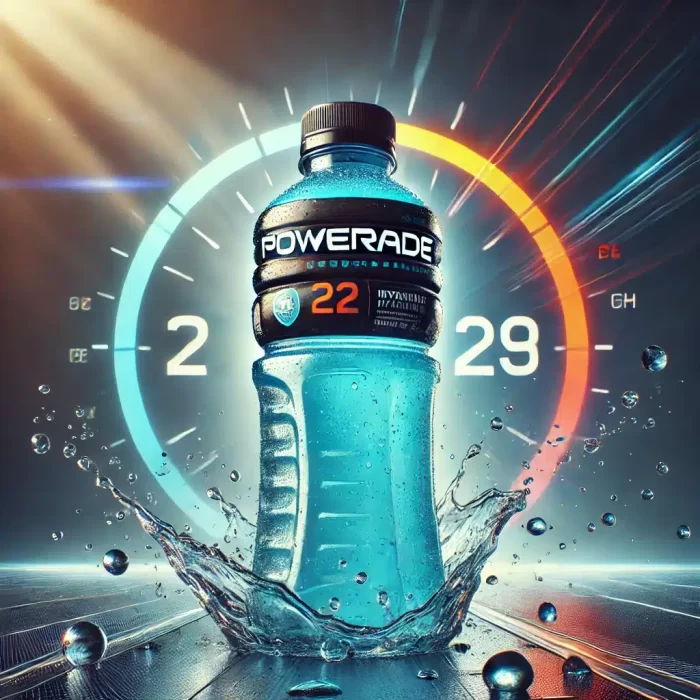
Understanding the difference between sports drinks and energy drinks can help clarify why most sports drinks like Powerade avoid caffeine.
Sports Drinks
- Purpose: Hydration and electrolyte replenishment.
- Key Ingredients: Water, electrolytes, carbohydrates.
- Examples: Powerade, and Gatorade.
- Caffeine Content: Typically none.
Energy Drinks
- Purpose: Boost energy and alertness.
- Key Ingredients: Caffeine, sugar, B vitamins, sometimes taurine or guarana.
- Examples: Red Bull, Monster, Rockstar.
- Caffeine Content: Usually ranges from 50mg to 300mg per serving.
How Does Powerade Compare to Other Drinks?
Powerade vs. Gatorade
- Standard formulations of both Powerade and Gatorade do not include caffeine.
- Both provide salt and potassium; the precise amounts vary somewhat depending on the product. For heavy sweaters, Gatorade’s somewhat higher salt level can be helpful.
- Sugar Content: Both have low-sugar regular versions. Powerade Zero Sugar and Gatorade Zero provide those looking for hydration free of extra calories.
- Taste: Gatorade has a milder, more subdued taste; Powerade often has stronger, sweeter flavors.
Powerade vs. Energy Drinks
- Caffeine: Powerade does not have caffeine; energy drinks practically usually do. One serving of energy beverages like Red Bull or Monster could carry anything from 80mg to 300mg of caffeine.
- Energy drinks are meant to increase alertness and energy levels; Powerade emphasizes hydration and electrolyte balance.
- Calorie count and sugar abound in many energy drinks. Powerade offers a zero-sugar alternative for consumers who are calorie-conscious even while it uses carbs to give energy.
- Audience: While Powerade targets athletes and those active, energy drinks are often promoted to anybody looking for a mental or physical boost.
Powerade vs. Soda
- Many sodas—especially colas like Coca-Cola or Pepsi—include caffeine, which Powerade does not have.
- Soda lacks electrolytes and generally has high sugar levels, hence it is not a good source of hydration. Conversely, Powerade is specially made for recuperation and hydration.
- Regular soda drinking can lead to dental problems and weight gain from its high sugar content. Though it’s not calorie-free—unless it’s the Zero Sugar variety—Powerade has practical advantages for physical performance.
Powerade vs. Bang vs. Gatorade Zero
- While Bang energy drinks include a lot of caffeine up to 300mg per can, making them appropriate for individuals looking for a stimulant boost, Powerade and Gatorade Zero are caffeine-free.
- Powerade and Gatorade Zero mostly concentrate on restoring electrolytes like sodium and potassium, which are vital for hydration during vigorous exercise. Bang may incorporate minute amounts depending on the taste, but it does not give electrolytes priority.
- Calories and Sugar Content:
- Unless it’s the Zero Sugar variety, Powerade has sugars for fast energy.
- Zero sugar in Gatorade Zero makes it a low-calorie hydration choice.
- Bang: Zero calories and sugar, but including artificial sweeteners and other stimulants.
- Purpose:
- Perfect for hydration and recuperation during workouts, Powerade and Gatorade Zero
- With its high caffeine concentration, Bang targets alertness and energy, so it is ideal for mental concentration and pre-workout boosts than for hydration.
Powerade vs. Coconut Water
- Powerade and coconut water neither have caffeine.
- Electrolytes: Although coconut water naturally contains potassium, it lacks the sodium level of Powerade, which is very vital for extreme perspiration.
- Sugar Content: Lower sugar levels in coconut water naturally sweeten it than in regular Powerade.
- Both are good for hydration; yet, because of their balanced electrolyte profile, Powerade is more appropriate for high-intensity activity.
Who Should Drink Powerade?
Powerade is appropriate for a broad spectrum of people, each gaining from its special formulation:
1. Athletes and Sports Enthusiasts
Athletes engaging in team sports, high-intensity interval training, or endurance events will find Powerade perfect. It restores electrolytes lost from sweating and supplies carbs to power muscles over longer runs. Powerade supports performance and enhances recovery whether your activity is basketball or a marathon.
2. Active Individuals
Powerade provides hydration and energy demands for those who regularly engage in physical activity—at the gym, on a hike, or during yoga classes. Its balanced electrolyte profile guarantees your ability to perform at your best even in demanding workouts.
3. Outdoor Workers and Adventurers
Powerade’s hydration qualities help those who work outside in hot conditions or participate in trekking, climbing, or cycling. The beverage helps restore electrolytes lost by sweating, therefore lowering the risk of heat-related exhaustion and dehydration.
4. Youth Athletes
Teenagers and young children engaged in sports sometimes need extra water. Powerade is a tasty substitute for plain water that motivates people to keep hydrated and provides the nutrients needed for recovery and vitality.
5. Post-Illness Recovery
Powerade can help restore electrolyte balance and offer small energy boosts to help those recuperating from diseases including dehydration, such as the flu or stomach bugs.
6. Long-Distance Travelers
Staying hydrated is crucial on long flights or road trips. Particularly in dry airplane settings or throughout long distances, Powerade provides a useful approach to fight dehydration and tiredness.
However, it’s not ideal for:
- Those who lead sedentary lifestyles: The extra sugars could support too high-calorie consumption.
- Those seeking a caffeine boost have better choices in tea or coffee.
Healthier Alternatives to Powerade
If you’re looking for hydration without the added sugars, consider these options:
1. Coconut Water
- Electrolytes: Coconut water naturally high in potassium helps restore vital nutrients. For light to moderate physical exercise especially, it works rather well.
- Sugar Content: Not as high as most sports drinks; natural sweetness here is not overly strong.
- None, hence caffeine is a natural and relaxing choice for hydration.
- Extra advantages include coconut water’s abundance of antioxidants and support for general cellular health. Compared to sports drinks, several people discover it simpler on the stomach.
2. Homemade Electrolyte Drinks
Making it at home lets you regulate the electrolyte and sugar levels. Including chia seeds can improve hydration and supply extra nutrients including omega-3 fatty acids.
Ingredients: For sweetness, mix water with a teaspoon of honey, a dash of salt, and any natural fruit juice—like orange or lemon.
Customizing: Change the components according to your dietary requirements or taste preferences.
Caffeine: None, hence it’s appropriate for all age ranges.
3. Infused Water (continued)
- For a cool variation, toss slices of cucumbers, lemon, mint, and berries into plain water. Drinking water can be more fun and encourage better hydration practices depending on the natural tastes.
- Though not as concentrated as sports drinks, adding fruits like citrus or a little Himalayan salt will naturally boost the electrolyte count.
- Caffeine: None, so it’s a great option for everyone, especially young children and those sensitive to stimulants.
- Infused water keeps you hydrated and offers antioxidants from the extra fruits and herbs, so enhancing general health.
4. Herbal Teas (Iced or Warm)
- Depending on the plant, herbal teas such as chamomile, peppermint, or rooibos offer a caffeine-free hydration choice with added calming or rejuvenating effects.
- Though herbal teas are not naturally high in electrolytes, a little bit of honey or a teaspoon of salt will make for a balanced drink.
- Caffeine: None, unlike conventional teas, hence it’s an excellent substitute for anyone avoiding stimulants.
- Depending on the mix, herbal teas can also provide particular health advantages including help with digestion, inflammation reduction, or relaxation promotion.
5. Sparkling Water
- For those who like carbonation, sparkling water offers a fun approach to remain hydrated free from additional sugar.
- Like mineral water, some sparkling waters naturally provide electrolytes. For maximum benefits, search for brands including additional potassium or magnesium.
- None of which guarantees it’s a safe and stimulant-free choice. Caffeine
- Further advantages include a better substitute for soda—sparkling water can be naturally flavored without artificial sugars.
6. Diluted 100% Fruit Juice
- Mixing one part juice with two or three parts water lowers the sugar content while still preserving taste.
- Juices high in natural electrolytes and vitamins—such as orange, watermelon, or coconut—help to support hydration during mild exercise.
- Caffeine: None, hence it’s appropriate for kids and people avoiding it.
- Extra advantages include vitamins and antioxidants, which help to maintain general health and vigor.
Frequently Asked Questions (FAQs):
Is Powerade suitable for children?
Yes, Powerade is safe for children, especially those involved in sports or active play. However, Powerade Zero Sugar may be a better option to avoid excess sugar intake.
Can Powerade help with dehydration?
Yes, Powerade is safe for children, especially those involved in sports or active play. However, Powerade Zero Sugar may be a better option to avoid excess sugar intake.
How does Powerade compare to Gatorade?
Both are sports drinks offering hydration and electrolytes. Powerade tends to have bolder flavors, while Gatorade is slightly higher in sodium. Both brands offer low-sugar versions.
Can I drink Powerade every day?
While occasional consumption is fine, daily intake might lead to excess sugar and calorie consumption if not balanced with physical activity.
Is Powerade better than water for exercise?
For prolonged or intense exercise, Powerade’s electrolytes and carbohydrates can enhance hydration and energy recovery compared to water alone.
Does Powerade Zero Sugar work the same as regular Powerade?
Yes, Powerade Zero Sugar provides the same hydration and electrolyte benefits without the added calories or sugars.
Final Thoughts
Ultimately, then, the bottom line? Powerade lacks caffeine, no matter what. Not in the standard bottles, not in the Zero Sugar variant, not even in the wild-colored ones that seem to propel you into orbit. Simply said, it is not that kind of beverage.
To be honest, that is not a negative thing.
Sometimes it’s pleasant to have one that just hydrates in a world when practically every beverage tries to serve as an energy booster. Powerade is designed for replenishment; electrolytes, fluids, and carbohydrates (based on the variant) not excitement. It provides your body with what it needs following an exercise without interfering with your heart rate or sleep pattern.
You’re safe here whether you’re hydrating your child following a soccer game, you’re sensitive to caffeine, or you’re just searching for something light and utilitarian.
Having stated that, if you are hunting that energy buzz? Powerade is not going to do it. To complement your water, you should investigate beverages like Gatorade Fast Twitch or pick another caffeine source.
Ultimately, it’s all about recognizing what you’re drinking—that is, drinking what your body requires.
